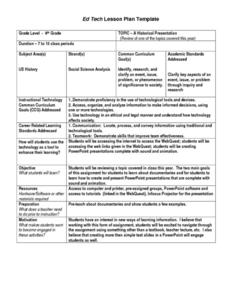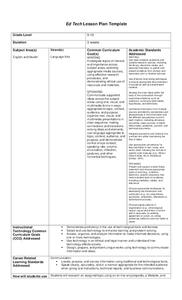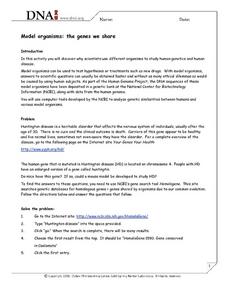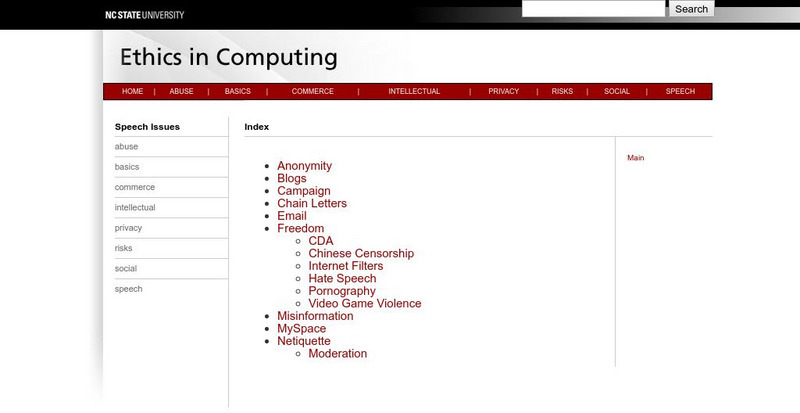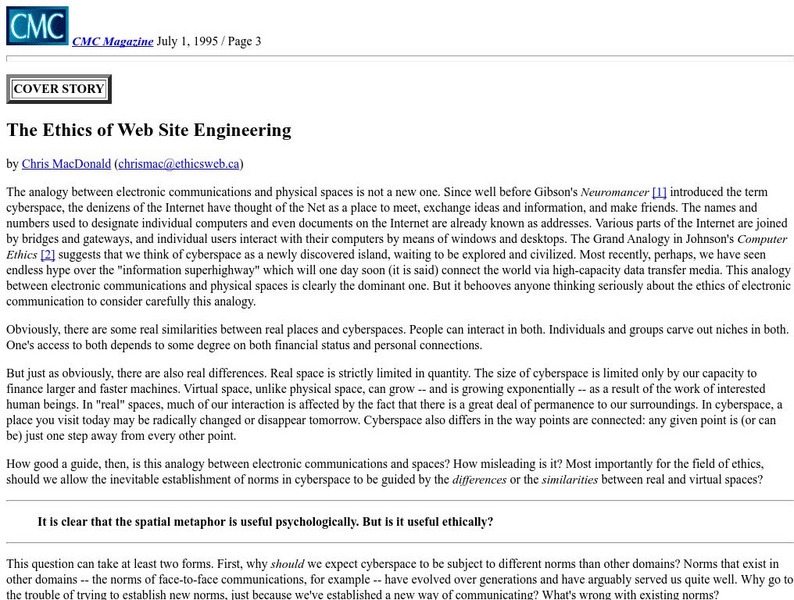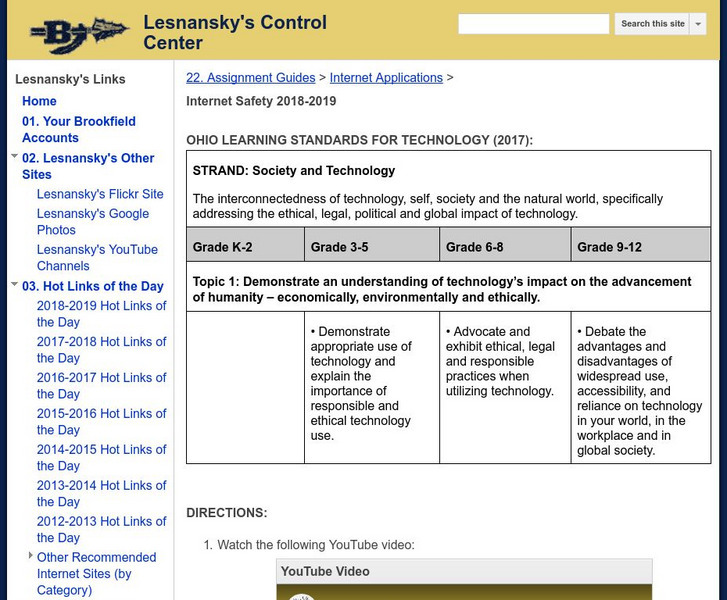Curated OER
A Historical Presentation
Eighth graders review a chosen social studies topic that was covered during the school year. They research the topic using a variety of sources. Students create a documentary about their topic and they create a PowerPoint presentation...
Curated OER
Ed Tech
Students access and evaluate authority of electronic resources. They synthesize data from multiple sources. Students compose a Works Consulted page. They prepare and deliver an informative speech on a disease or medical condition.
Curated OER
Latino-American Authors and Historical FIgures
Eighth graders examine various websites and gather information from them about influential Latino-Americans. They synthesize the information they gathered to create a poster about their chosen influential Latino-American. Students...
Curated OER
Conserving Marine Life
Students discuss the different threats to various marine life. Through research, groups examine threats to specific marine life, evaluate the situation, and develop possible solutions to help marine life regain stability. Conservation...
National First Ladies' Library
World Starvation
Students investigate the concept of world starvation and some of the organizations that are founded in order to help solve the problem. They conduct research using a variety of resources. The information is used in order to conduct class...
Curated OER
DNA-a Molecular Identity
Learners explore about what DNA is and several different DNA typing techniques. They examine three different situations where DNA typing was used to carry out justice. Students also identify and evaluate different uses of DNA typing...
Curated OER
Model Organisms: The Genes We Share
In this genetics worksheet, students access a website to learn about how human genes mutate to cause heritable disorders such as Huntington disease. Students use the information on this website to complete 12 short answer questions.
Other
California State Univ.: Internet as Ethics Resource Tool
Site from California State University, Fullerton addresses ethical use of the internet with hyperlinks to valuable sources from the US Supreme Court to Thomas Jefferson and John Stuart Mill.
Internet Encyclopedia of Philosophy
Internet Encyclopedia of Philosophy: Ethics
This site from the Internet Encyclopedia of Philosophy gives a general introduction to the field of philosophical ethics. Divines moral philosophy into three main topics: metaethics, normative ethics, and applied ethics, including links...
Google
Google: Be Internet Awesome: Interland
Kids can play their way to being Internet Awesome with Interland, an online adventure that puts the key lessons of digital safety into hands-on practice with four challenging games. Play your way to being an Internet Legend!
Internet Encyclopedia of Philosophy
Internet Encyclopedia of Philosophy: Baruch Spinoza
This site from the Internet Encyclopedia of Philosophy provides an in depth look at the life and works of Baruch Spinoza. Includes links to related material.
NC State University
North Carolina State University: Ethics in Computing
This site contains a repository of information about a variety of computer ethics topics.
NC State University
North Carolina State University: Ethics in Computing: Speech Issues
Curated collection of links to articles, essays, and related topics on responsible use of the Internet and information technologies with respect to speech and online hate compiled and maintained by a university instructor.
ibiblio
Ibiblio: The Ethics of Web Site Engineering
An article from Chris MacDonald on computer ethics of Web site engineering. Includes ethics, personal space, and administrave responsibility.
Alabama Learning Exchange
Alex: Computer Lab Rules and Technology Ethics
Lesson plan that reinforces computer lab rules and technology ethics as students create newsletters or presentations.
Internet Encyclopedia of Philosophy
Internet Encyclopedia of Philosophy: Thomas Hobbes
This site from The Internet Encyclopedia of Philosophy provides a comprehensive survey of the life and philosophy of Thomas Hobbes. It discusses his writings as well as his ideas on moral and political philosophy.
Internet Encyclopedia of Philosophy
Internet Encyclopedia of Philosophy: Immanuel Kant (1724 1804)
A very in-depth look at the philosophical ideas of Immanuel Kant on subjects such as ethics, rationalism, and much more.
Other
Association for Computing Machinery: Acm Code of Ethics and Professional Conduct
The "Code of Ethics" from the American Association for Computing Machinery. Includes responsibility to employers, clients, system users, the profession, and society.
Massachusetts Institute of Technology
Mit: Internet Classics Archive: Nicomachean Ethics
This site from the Internet Classics Archive provides the full text of Aristotle's "Nicomachean Ethics"; translated by W. D. Ross.
Internet Encyclopedia of Philosophy
Internet Encyclopedia of Philosophy: Egoism
Essay explaining the varieties and nuances of egoist ethical theories. Divides such theories into four types: positivist, rational, ethical and conditional. Does a good job of providing examples along the way.
Other
Brookfield High School: Lesnansky's Control Center: Internet Safety
In this activity, students watch a video on staying safe online, then create a slide presentation using Google Slides (or other software, e.g., PowerPoint) that explains the four main points stated in the video. [5:02]
Internet Encyclopedia of Philosophy
Internet Encyclopedia of Philosophy: Epicurus
This site from the Internet Encyclopedia of Philosophy is an excellent, detailed introduction to the philosophy of Epicurus. Divided into sections addressing his metaphysics, epistemology, ethics. Includes numerous links to related...
Internet Encyclopedia of Philosophy
Internet Encyclopedia of Philosophy: John Dewey
Biography and thorough discussion of Dewey's thought, with bibliography at bottom from the Internet Encyclopedia of Philosophy. Divides his philosophy into theory of knowledge, metaphysics, ethics, and aesthetics, and then judges his...
Other
Albion: The Core Rules of Netiquette
Excerpts from the book "Netiquette" which gives etiquette rules for using the Internet. Ten rules with explanations are presented.
